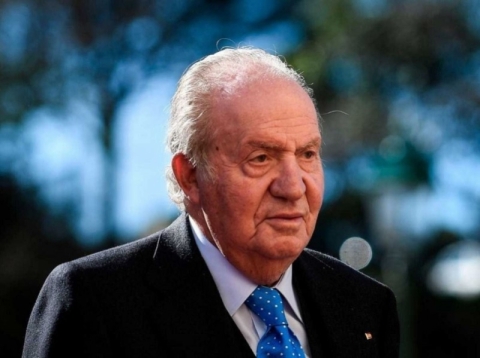Politics
A complaint is filed against the Emeritus King Juan Carlos I for tax crimes
Retired lawyers and intellectuals
USPA NEWS -
Twelve retired lawyers and intellectuals have filed a complaint before the Criminal Division of the Supreme Court against the Emeritus King of Spain, Juan Carlos I. Among its promoters are the former president of the National Court, Clemente Auger; the former magistrate of the Supreme Court, José Antonio Martín Pallín; the former head of the Anti-Corruption Prosecutor's Office, Carlos Jiménez Villarejo; the widow of José Saramago, Pilar Sánchez, or the philosophers Josep Ramoneda and Santiago Alba.
They all exercise the popular accusation and demand a bail of one euro from the High Court because, they say, "we only have the purpose of promoting the superior value of justice, the general principles of the rule of law and in this case, equality before the law." The complaint seeks to force the criminal chamber of the Supreme Court to rule on whether or not the tax regularization of the Emeritus King complied with current legislation, since it is the only Court that can investigate and, if necessary, prosecute the privileged person, who is accused of five crimes of tax fraud in its aggravated form committed in the fiscal years between 2014 and 2018. The document considers that this regularization of more than 600,000 Euros first and 4.4 million Euros later should not have been allowed because Juan Carlos I had already received two previous notifications and had been offered the possibility of appearing in the procedure.
Therefore, they stress, it was not a spontaneous regularization, as argued by the Supreme Court Prosecutor's Office to archive in March 2022 the proceedings it opened in 2020. The plaintiffs cite investigations into the use of credit cards linked to funds of the Mexican businessman Allen Sanginés-Krause by the Emeritus King and some of his grandchildren, as well as the alleged collection of illegal commissions in the works of the AVE to Mecca and the existence of companies in tax havens, to which must be added the Zagatka Foundation, linked to his cousin Álvaro de Orleans, which paid for expenses for trips and services performed by the Emeritus King.
The promoters assure that they are now filing this complaint, after having had many conversations on this matter and having suspended it in 2023 so as not to influence the electoral calendar. Last June, they decided to work on the complaint they are now filing, in which it can be read that "we are motivated by the defense of the general interest in that we believe that there are crimes against the Public Treasury that violate not only the precepts of the Penal Code that we will invoke but also the principles of equality and solidarity, in addition to legal and ethical obligations that are especially enforceable for those people who hold public positions of constitutional relevance, in this case the Head of State. Obviously, there is a general interest in ensuring that conduct of unequivocal criminal relevance, as can be seen from the report of the Supreme Court Prosecutor's Office, is investigated before the Second Chamber of the Supreme Court." For this reason, they ask the chamber to order a series of proceedings, including summoning the Emeritus King to testify.
In February 2021, the Supreme Court rejected the complaints of the policital coalition Izquierda Unida and Omnium Cultural for the alleged tax fraud of the father of King Felipe VI. The Court then said that the complaints basically reproduced the content of press reports, and that to open a criminal case something more is needed, since “generally speaking, a news item by itself does not legitimize any popular plaintiff to convert the journalistic report into a report of punishable acts that trigger the criminal process. The value judgments of the person who intends to exercise the popular action do not convert the news item into a crime.”
Liability for this article lies with the author, who also holds the copyright. Editorial content from USPA may be quoted on other websites as long as the quote comprises no more than 5% of the entire text, is marked as such and the source is named (via hyperlink).






